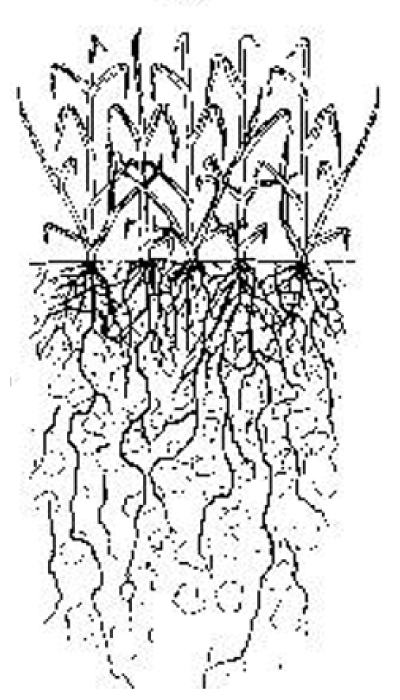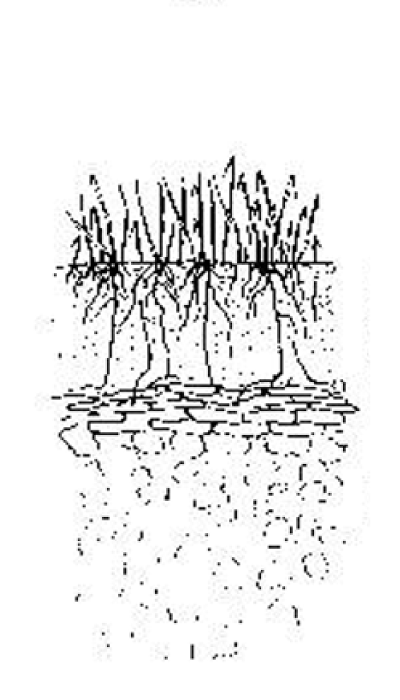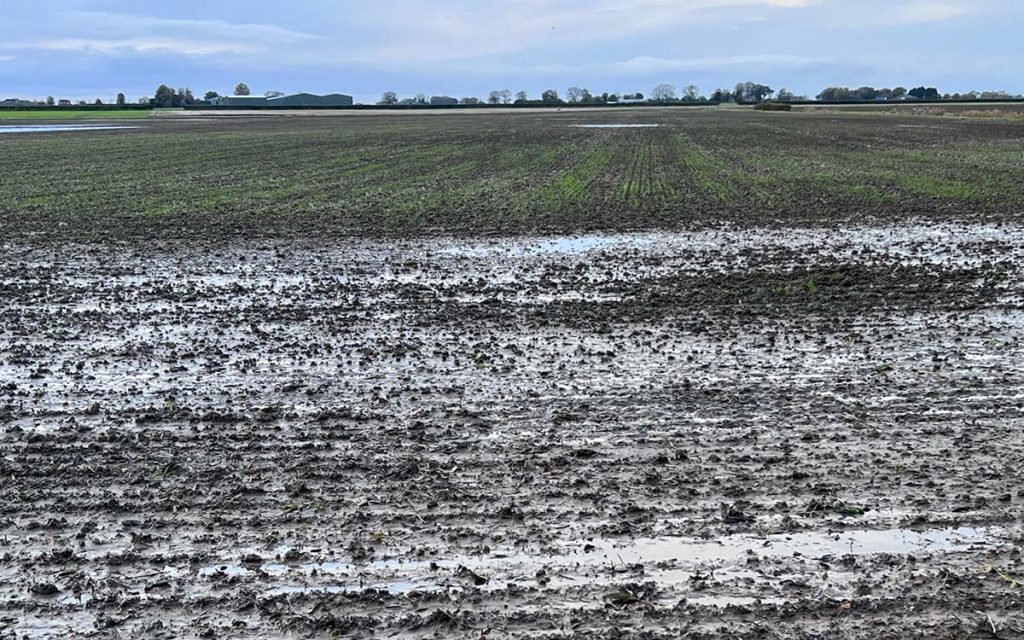Establishment and Waterlogging
November 2023
Establishment is the most critical period in any annual crops life-cycle, as it is the time when the yield potential is set. All challenges the crop faces during the season serves to reduce the final yield from this potential. Therefore, conversely, any management decisions taken from this point onwards only helps limit the reduction in this yield potential.
2023 autumn has been another challenging one for many growers across the country, with a third very wet one in five for some. Clearly very little can be done about the vast quantities of excess rainfall that have led to flooding in some parts, but not all moisture issues this autumn have been down to this. In some areas water can clearly be seen on the surface of fields as a result of soil compaction issues. Compaction, even at low levels, is a major problem for large parts of the arable area in the UK, and potentially a hidden reason behind the plateauing of crop yields on farm.


Compacted soils will restrict root growth reducing their ability to explore the soil and capture sufficient nutrient and water. Where root growth is restricted, even soils at the target levels of 2 and 2- for phosphate and potash, may not be able to supply the total rate of nutrient required by the crop during times of peak uptake in the spring.
Impact of Potassium on Waterlogging Stress
Yield losses due to waterlogging may vary between 15% and 80%, depending on the crop species and growth stage, soil type and duration of the stress, resulting in severe economic penalties.
Waterlogging is known to block the oxygen supply to the roots, inhibiting root respiration, resulting in a severe decline in energy status of root cells. This can affect some important metabolic processes of plants including stomatal conductance, rate of photosynthesis and root hydraulic conductivity, decreasing its ability to take up most essential cations (K+, NH4+ or Mg2+).
Soils with a good potassium status have been shown to effectively reduce the adverse effects of waterlogging on plants. Plants show not only increased growth and photosynthetic rate, but also improved nutrient uptake.


